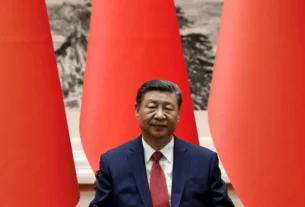Turkish President Recep Tayyip Erdogan seeks support from former U.S. President Donald Trump to advance Turkey’s influence in the Middle East. Erdogan views Trump’s backing as key to achieving his regional goals, particularly as tensions with Western powers escalate. With Turkey involved in conflicts in Syria, Iraq, and Libya, Erdogan believes Trump’s influence can help him solidify Turkey’s position in these critical areas.
Erdogan’s foreign policy aims to expand Turkey’s role in the Middle East, making it a central player in regional affairs. Turkey’s involvement in conflicts and military operations has often put it at odds with Western allies, including the U.S., yet Erdogan persists in asserting Turkey’s independence. By aligning with Trump, Erdogan hopes to gain political support to help Turkey navigate this increasingly complex geopolitical environment.
Trump emphasized his relationship with Erdogan during his presidency, and the two leaders developed a strong rapport. The former president admired Erdogan’s leadership, often downplaying tensions with Turkey to prioritize his connections with global leaders. Erdogan hopes that reigniting this relationship will secure the backing needed for Turkey to proceed with its regional ambitions, particularly in Syria and Libya.
Despite Turkey being a NATO member, Erdogan’s actions have distanced the country from its Western allies. Disagreements over military operations, human rights issues, and Turkey’s ties with Russia have strained U.S.-Turkey relations. Erdogan believes that Trump’s endorsement could counterbalance these tensions, offering Turkey more leeway in its foreign policy and helping it further its goals in the Middle East.
The changing dynamics of U.S. involvement in the Middle East create an opportunity for Turkey to increase its influence. With the U.S. reducing its regional footprint, Erdogan sees a chance to fill the power vacuum, particularly in Syria and Libya. Securing Trump’s support would bolster Turkey’s regional standing and allow it to challenge U.S. influence in the Middle East.
Additionally, Erdogan hopes Trump’s backing will boost Turkey economically. The country’s economy has struggled with high inflation and a weakening currency, and Erdogan is keen on attracting foreign investments. Aligning with Trump might open doors for economic deals and trade agreements that could help stabilize Turkey’s economy.
Erdogan may offer strategic concessions to the U.S. in exchange for Trump’s support, particularly in countering Iran’s regional influence. Turkey’s position as a key partner in combating terrorism and maintaining stability makes it an essential asset for U.S. policy. By offering these concessions, Erdogan hopes to secure a deal that benefits Turkey and the U.S., strengthening their relationship.
Turkey’s frustrations with its traditional alliances become more apparent as Erdogan seeks alternatives, including closer ties with Russia and China. However, reaching out to Trump signals a desire to reconnect with the West while still pursuing an independent foreign policy. Erdogan’s attempt to balance these competing interests highlights the shifting nature of global diplomacy and Turkey’s place within it.
The outcome of Erdogan’s efforts could have significant implications for the Middle East’s balance of power. If Trump supports Erdogan, Turkey’s influence in the region may grow, but this could also alienate other global powers like the EU and NATO. Erdogan must navigate these relationships carefully as he works to secure Turkey’s future in a rapidly changing geopolitical landscape.




